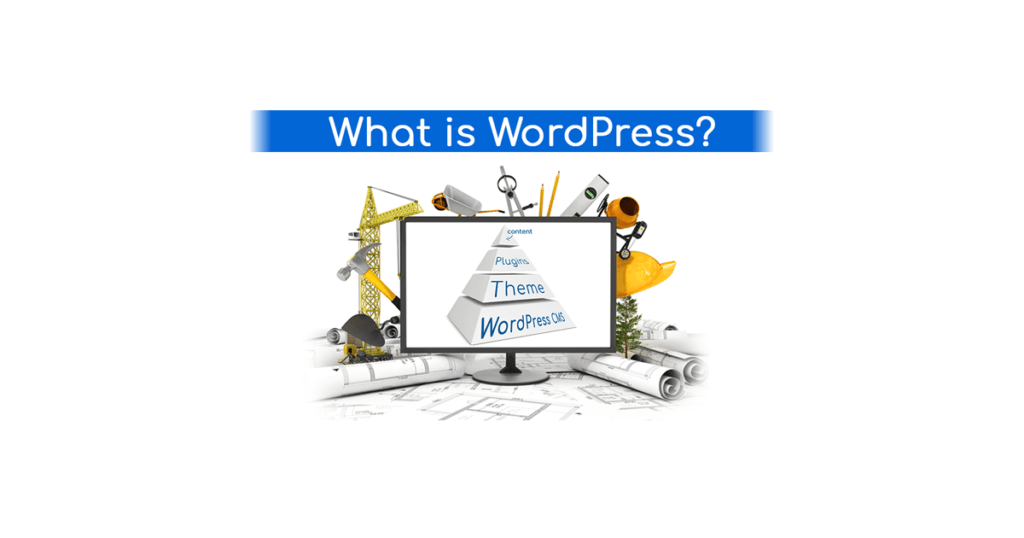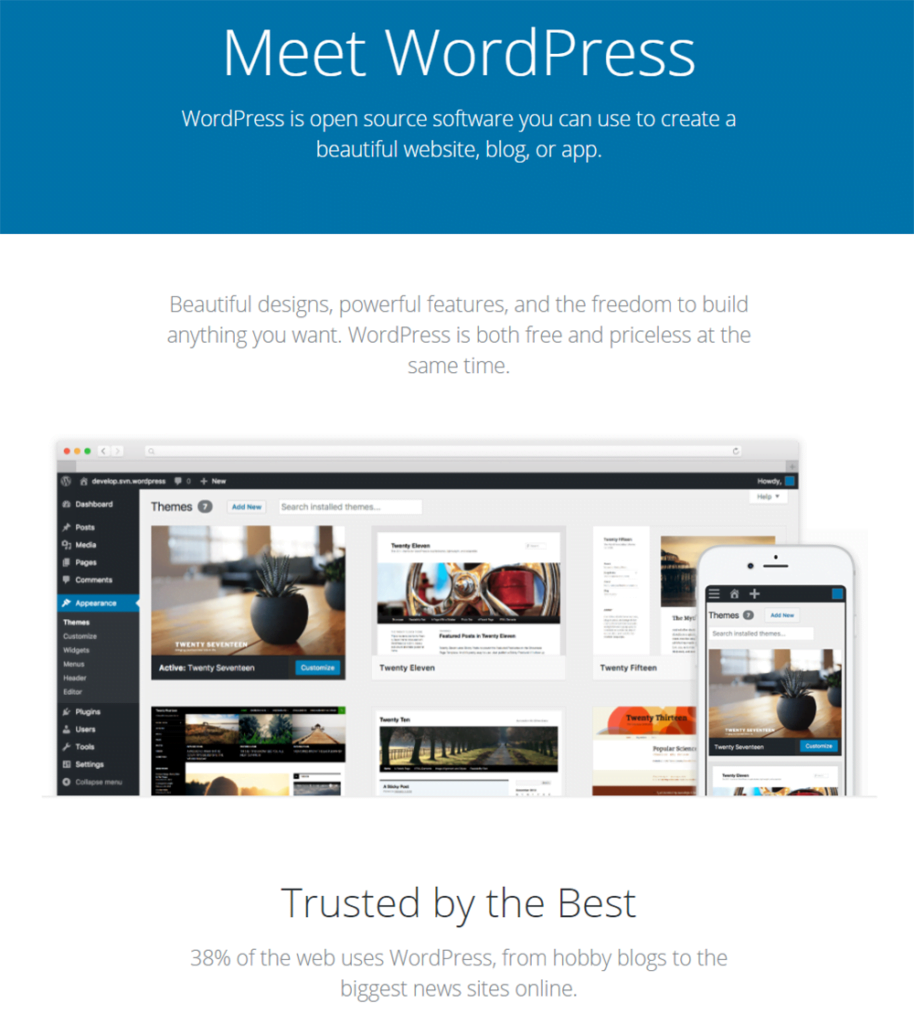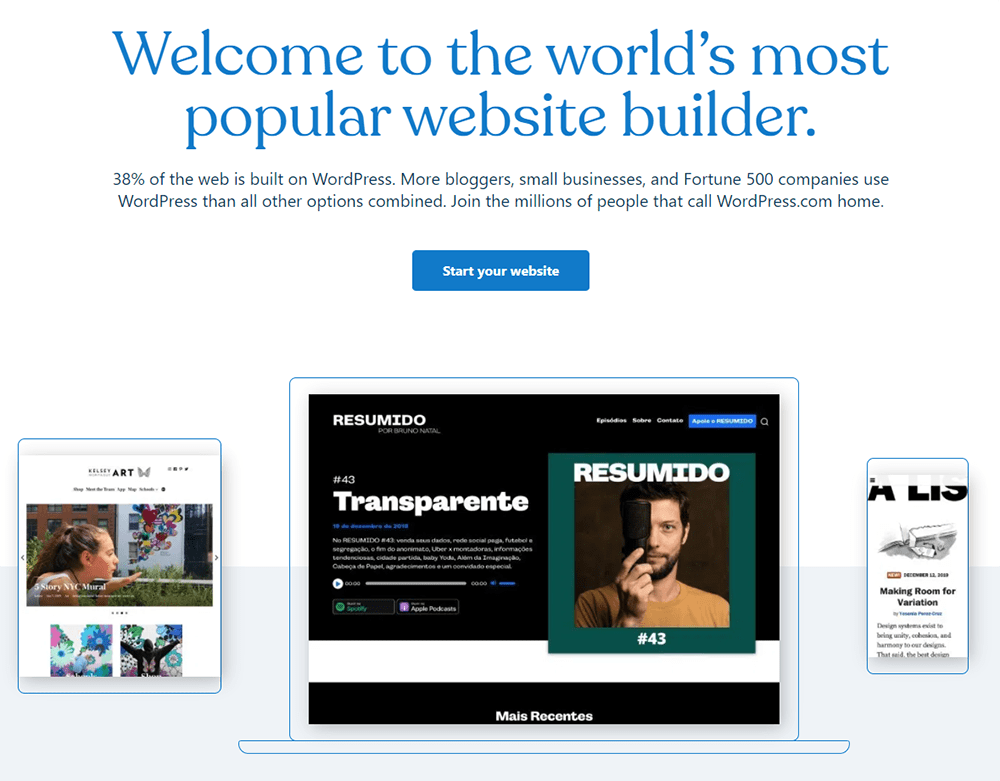
What is WordPress? 5 Simple Answers for 2021
What is WordPress? Anyone considering a website has heard of it, but what exactly makes it different from all the other ways you can build a website? How does WordPress work? Is WordPress right for you? We’re going to answer all the questions you may have about what WordPress is and is not.
WordPress is a lot of things. You may already know a little bit about what it is and what it does. Have a look at our table of contents so you can jump to the section that is right for you:
Table of Contents
- What is WordPress? WordPress is Website Software Started 2003, Now Overseen by The WordPress Foundation.
- What is WordPress? WordPress is Open Source.
- What is WordPress? WordPress is a Content Management System (CMS) Built on PHP & a Database.
- What is WordPress? WordPress is Free.
- What is WordPress? WordPress is the Most Popular Way to Build Websites.
- A Summary of What WordPress Is
1. What is WordPress? WordPress is Website Software Started 2003, Now Overseen by The WordPress Foundation.
Almost 20 years ago, American Matt Mullenweg and Briton Mike Little collaborated to create a new blogging platform based on the soon to be discontinued b2/cafelog blogging platform.
The pair rolled out the first version of WordPress on May 27, 2003.
No one owns the WordPress software itself. The name “WordPress” and its logo, however, are owned by the WordPress Foundation NGO. This allows a non-profit organization to protect and oversee the development of the entire WordPress ecosystem. The WordPress Foundation itself is overseen to this day by WordPress creator Matt Mullenweg.
There is only one for-profit website that is permitted to use the name WordPress, and that is WordPress.com, which is owned by Automattic. The CEO and primary shareholder of Automattic is Matt Mullenweg.
Via this unique arrangement, Mr. Mullenweg has built an incredibly successful company (Automattic was valued at US $3 billion in 2019) while keeping the software that the company creates free and open to the public.
The WordPress ecosystem also provides incomes for tens of thousands of businesses, from individual freelance WordPress designers, to theme or plugin developers, to hosting companies that host WordPress websites. (We’re in that last one. Thanks Matt!)
2. What is WordPress? WordPress is Open Source.
What is open source software (OSS)? Unlike commercial software, open source software isn’t owned by anyone. Users can all read and edit the source code, so large numbers of programmers (aka the “community”) can contribute improvements to the code.
WordPress is released under the GNU Public License by the Free Software Foundation, which is also known as the GNU GPL.
This gives WordPress many advantages. In addition to not costing anything, open source WordPress software is:
1) source code can be shared, tested, and repaired.
2) constantly improved and updated by the community.
3) more secure — because bugs can quickly be identified by users and eradicated by the community.
4) popular with programmers looking to improve their skills while contributing to the community.
Keep in mind that themes and plugins created for WordPress must also be built using GNU GPL, so they are free as well. This means that when you purchase a theme or a plugin, you are actually paying for the maintenance, support and updating of those plugins, not the plugins themselves.
3. What is WordPress? WordPress is a Content Management System (CMS) Built on PHP & a Database
WordPress manages the digital content on your website — text, images, videos, links, etc. — which is why it is called content management system (CMS) software. Hence, WordPress allows you to create, edit, and manage website content without directly editing HTML, CSS, and other codes that actually run the site.
The WordPress CMS is built on top of two other platforms that are constantly updated as well. PHP is the general purpose scripting language that it is built on top of and that must be paired with database software, typically MySQL or MariaDB.
To maintain a secure WordPress website, these underlying technologies all need to be maintained and updated regularly on your server in addition to your WordPress core code, themes, and plugins.
4. What is WordPress? WordPress is Free.
A basic WordPress website, hosting and all – is completely free, just like Facebook or Gmail. You can pay to upgrade your website if you so choose. This is often called “freemium.”
WordPress.com is Freemium Software + Hosting
Beginners can try out WordPress absolutely free by starting a WordPress website at WordPress.com. At absolutely no cost, you can have a website up and running as quickly as 30 minutes. From there you can upgrade to plans that start at as little as $4 per month and run up into WordPressVIP plans that can start around $1,700 per month – so obviously there is room to grow.

WordPress.org is Free Website Software
Want to download the most popular website building software in the world right now? Just navigate to WordPress.org/download and click download. Boom! This incredible software is now on your computer.
This is where costs come into play. To put a website on the internet, you need to upload it to a server that is connected to the internet. Many companies will do this for you very inexpensively and you can access your website online anytime.
Finding the right host is about balancing cost vs time, speed, and security.
Inexpensive shared hosting will offer service that is less secure, slower, and provides less support. If your website is a side project, then this will likely be fine for you.
Building your own server stack or VPS can be less expensive, but it will involve a lot of time and require expertise. If you are a systems administrator or technical expert, then this may be fine with you as well.
If your website is very valuable to you, however, then using a Managed WordPress Hosting company (like TFWPH) is a good way to get speed, security, and 24/7 service.
5. What is WordPress? WordPress is the Most Popular Way to Build Websites.
WordPress powers nearly 30 million websites and continues to gain market share. WordPress is on pace to be used to build over 40% of websites in 2021, which would give it over 64% of global CMS market share. (Many websites are built with no CMS, hence they are not the same thing.)
Even more telling is that the #2 player, Shopify, significantly lags behind WP with a paltry 3% market share.
Other popular open source CMS options include Joomla and Drupal, with respective market shares of 3.7% and 2.5%.
WordPress’s domination of the market is why so many more programmers and developers seek to create themes and plugins that they can sell to users, leading to more growth in market share in a virtuous circle.
A Summary of What WordPress Is
WordPress is the most popular open source content management system in the world – by far. There’s no other CMS that compares.
Thanks to this popularity, there are vastly more resources available to help you accomplish your website goals than any other CMS.
These resources include 10s of thousands of themes and plugins that have been built to make it easy to create designs and add functionality to your WordPress website. They also include a massive community of WordPress users whom you can reach out to for assistance everywhere from WordPress.org Forums to helpful Reddit Communities.
Finally there are terrific WordPress-specific managed hosting companies that make sure you have the fastest, most secure servers and support 24/7 – like the fastest WordPress hosting!
But that doesn’t mean WordPress is right for everyone. If you’re still wondering whether WordPress is right for you, then have a look at our article, “Is WordPress Right For Me?” We’ll help you determine the best CMS for you.
